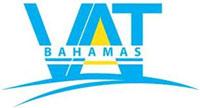The contents of this letter are for those persons, who are aggrieved and will most likely lose money due to the incompetence, malpractice and negligence of attorneys and business persons in and out of the Bahamas. As a police officer I received a lot of training in law, both locally and in police training schools in England. In the Bahamas I had the good fortune to be taught by the best, Salathiel Thompson, Stanley Moir and Sir Albert Miller. In recent years there have been so many reports of clients losing money to attorneys and employees losing money to their employers, in particular through non-payment of National Insurance collection made and contributions made to Pension Plans. The contributions are made in good faith with the hope for the future benefits.
The closure of a resort in Freeport and a food store chain in New Providence are examples of what appears to be employees’ loss of benefits. In all of these matters, including those involving attorneys, it appears that civil action is what is being taken by those aggrieved. I submit, that in most of these cases if complaints are made to the police and facts may indicate that a crime has been committed the Penal Chapter 84 reads:
For the purpose of any provision of this code by which forgery, falsifications or other unlawful act is punishable if used or done with intent to defraud, an intent to defraud means an intent to cause, by means of such forgery, falsification or other unlawful act, any gain capable of being measured in money, or the possibility of any such gain, to any person at the expense or the loss of any other person.
Any other offence would very likely include a Fraudulent Breach of Trust – Section 140 (1)e Whoever is convicted of a fraudulent breach of trust – here the value of the property alleged to be stolen, in the opinion of the court, is not more than $500 shall be liable to imprisonment for three months or to a fine of $500 or both – section 347 – whoever is convicted of fraudulent breach of trust is liable to imprisonment for five years.
Following are the definitions:
Trust – Where a donor grants the power (legal authority) to another person/s. Trustee(s) to legally hold property for the benefit of others. (Beneficiary/Beneficiaries which may include the donor). The trustee is obligated to act in the best interest of the beneficiary and in accord with the terms of the power granted to him. Fiduciary – A person who holds a position of trust or confidence with respect to someone else and who is therefore obliged to act solely for the person’s benefit. Fraud – A false representation by means of a statement or conduct made knowingly with the intention to deceive or defraud any other person in order to gain a material advantage or benefit. Breach of Trust – Where the trustee is in a fiduciary relationship to the beneficiary and the trustee acts in manner contrary to the terms of his power to the detriment of the beneficiary/beneficiaries.
Examples: A vendor contracts with an attorney to do legal work for sale of his land. Sale is completed but lawyer withholds proceeds due to client and unlawfully fails to disburse proceeds due to client. This amounts to a breach of trust on the part of the lawyer. If the lawyer uses the proceeds of sale for his own benefit and fails to deliver up the same to the vendor/client – this would amount to conversion. It is my submission, that employees, who pay National Insurance dues and pension contributions to employers, that those employers are trustees in a fiduciary relationship to the employees, who are the beneficiaries and that the criminal offenses of Fraudulent Breach of Trust or Fraudulent conversion have been committed. All such aggrieved should make complaints to the police for investigation.
Paul Thompson Sr
Nassau, The Bahamas
August, 2012


